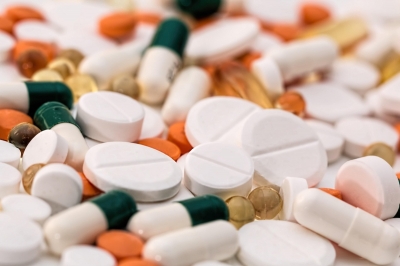America’s bet on China for pharma, drugs may be highly risky: Report
By IANS | Updated: August 26, 2025 15:00 IST2025-08-26T14:53:45+5:302025-08-26T15:00:29+5:30
New Delhi, Aug 26 While the US sources cheap medicines ranging from everyday painkillers like ibuprofen and acetaminophen ...

America’s bet on China for pharma, drugs may be highly risky: Report
New Delhi, Aug 26 While the US sources cheap medicines ranging from everyday painkillers like ibuprofen and acetaminophen to critical antibiotics and chemotherapy agents from China, increasing dependency on the country may introduce serious risks, according to a report.
Citing the US trade data, the report in US political website The Hill stated that America “imports 95 per cent of ibuprofen, 91 per cent of hydrocortisone, 70 per cent of acetaminophen and up to 45 per cent of penicillin from China”.
The report flagged diminished oversight and questionable product quality on products from China and suggested mitigating the exposure with a comprehensive strategy.
It noted how “quality control issues associated with Chinese-made generics continue to raise alarm”.
This includes "documented instances of ineffective anesthetics, blood pressure medications that fail to reduce pressure, and non-functional laxatives,” stated the report, citing 2025 research by the Brookings Institution.
Further, “inadequate regulatory oversight within China and a procurement system that prioritises cost over quality” is of concern.
The report also pointed out the minimal inspection presence of the US Food and Drug Administration on production sites in China.
To counter a sudden disruption in Chinese pharmaceutical exports "whether caused by a geopolitical crisis, pandemic or trade war", the report suggested the US to incentivise domestic manufacturing of “finished drugs and active pharmaceutical ingredients (APIs)” as well as “the essential chemicals and raw materials”.
It also called on the US to enhance the transparency of APIs and expand the number of FDA inspectors stationed in China.
The report also recommended “maintaining reserves of essential medicines and their components to buffer against geopolitical shocks”.
Notably, it urged the US to “collaborate with trusted partners such as Japan, South Korea, and Germany to create a diversified and resilient international supply chain”.
“A one-size-fits-all policy approach will fail. Instead, the US needs targeted assessments that prioritise essential medicines and their specific points of failure, especially those with no readily available alternatives,” the report said.
Disclaimer: This post has been auto-published from an agency feed without any modifications to the text and has not been reviewed by an editor
Open in app